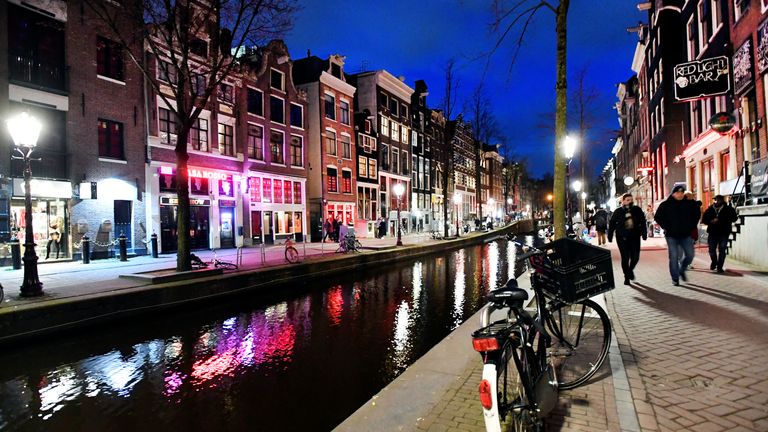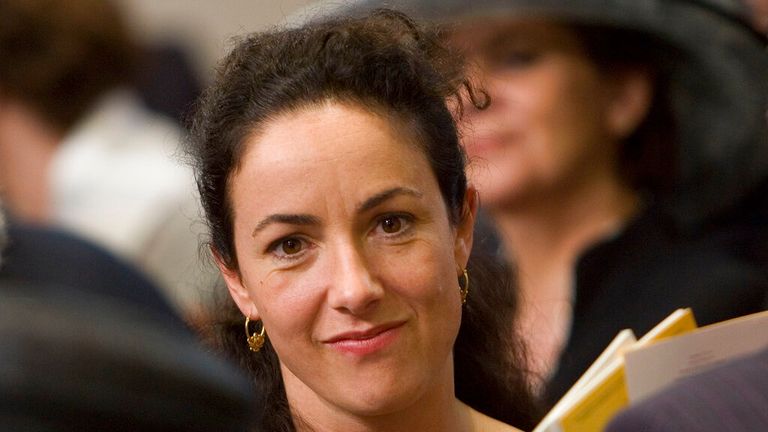Amsterdam to ban cruise ships from city centre in latest crackdown on overtourism


Amsterdam has banned cruise ships from docking in the city centre in its latest attempt to cut tourism and pollution.
Politicians in the Dutch capital said cruise ships were “incompatible” with their sustainability ambitions for the city, which, despite its relatively small size, is one of the most visited in Europe.
It comes after the Dutch capital launched a “stay away” campaign in March in a bid to deter people – particularly young British men – from choosing the city as a party and stag-do destination.
In February, the council also banned people from smoking cannabis in the streets of the city’s famous red-light district and ordered bars and restaurants to shut by 2am on Fridays and Saturdays.
The cruise ship ban will result in the closure of the city’s central terminal on the River IJ, near Amsterdam’s main train station.
The proposal was adopted by a large majority of the city’s council, which is run by a coalition of the centrist Democrats 66 party (D66), the social democratic PvdA and the GroenLinks environmentalists.
D66 politician Ilana Rooderkerk, who compared cruise passengers to a “plague of locust” in an opinion piece last month, said Amsterdam would “sail better” without cruise ships.
“The polluting cruise is not in line with Amsterdam’s sustainable ambitions,” she wrote on Twitter.
“Cruise ships in the city centre also do not fit in with the task of combating mass tourism.”
Advertisement
Her party said plans to build a new bridge between Amsterdam’s historic southern district and the Noord district would also be impossible if cruise ships were allowed to continue docking in the city centre.
Alternative sites from cruise ships have been considered, though no decision has yet been made on where it could be placed.
Mayor Femke Halsema, from the GroenLinks party, complained about cruise ship passengers in an interview with Dutch media in November.
She said that they did not benefit the city’s residents because they only visited for a “couple of hours”, ate meals at “international brands” and had “little time” to visit museums.

Ms Halsema, the city’s first female mayor, has been the face of Amsterdam’s campaign to clean up its streets, which welcome up to 22 million tourists each year, despite the city’s relatively small size.
Its reputation as a party city, with its cannabis cafes and historic red-light district, has led it to become a popular destination for stag-dos.
In a wide-ranging interview with Bloomberg last year, she said: “Amsterdam welcomes 22 million tourists per year, and that’s a little bit too much.
Read more:
Dutch PM resigns after collapse of coalition government
Transgender woman wins Miss Netherlands for the first time
“It’s not a form of tourism we welcome or don’t welcome – it’s a form of behaviour. What we do not welcome is people who come here on a vacation from morals.
“It’s a place where you should go if you’re looking for beautiful museums, or to see the underground culture, or if you want to attend our Pride.”
Amsterdam is not the first European city to ban cruise ships from its city centre.
Venice banned cruise ships from its city centre in April 2021, following a request from UN cultural body Unesco.
While Barcelona has not outright banned cruise ships, it has made efforts to limit the number arriving in its docks.
It wants to cut the number of cruise tourists from 400,000 per month to 200,000.

